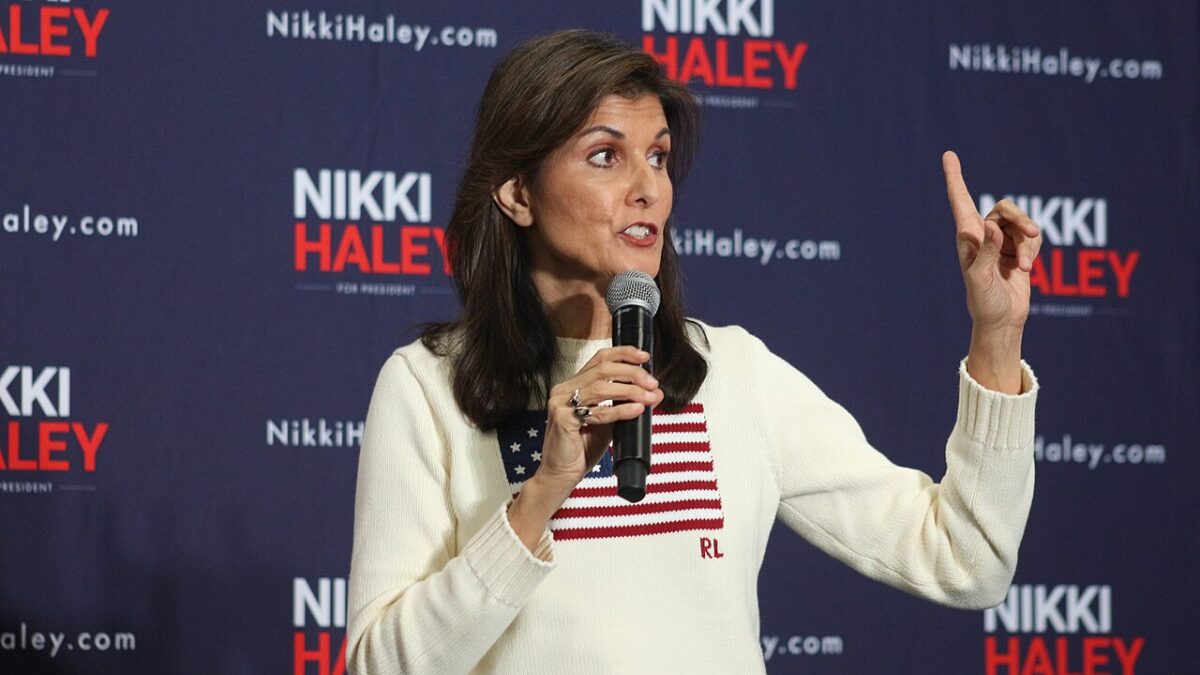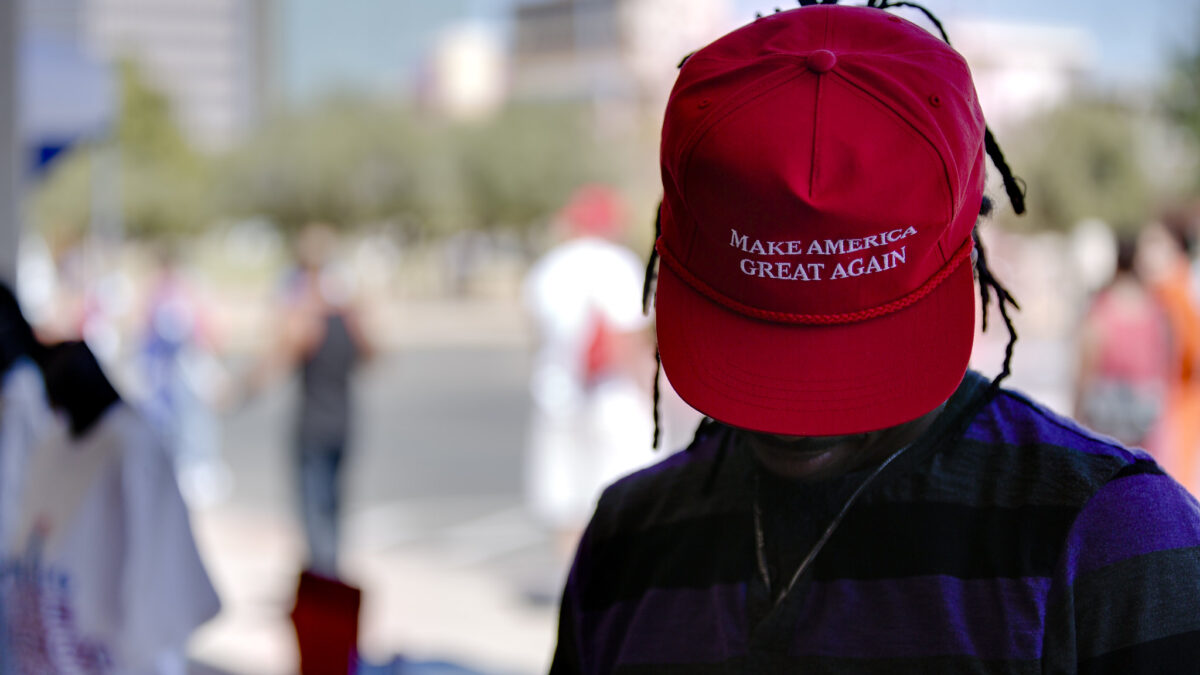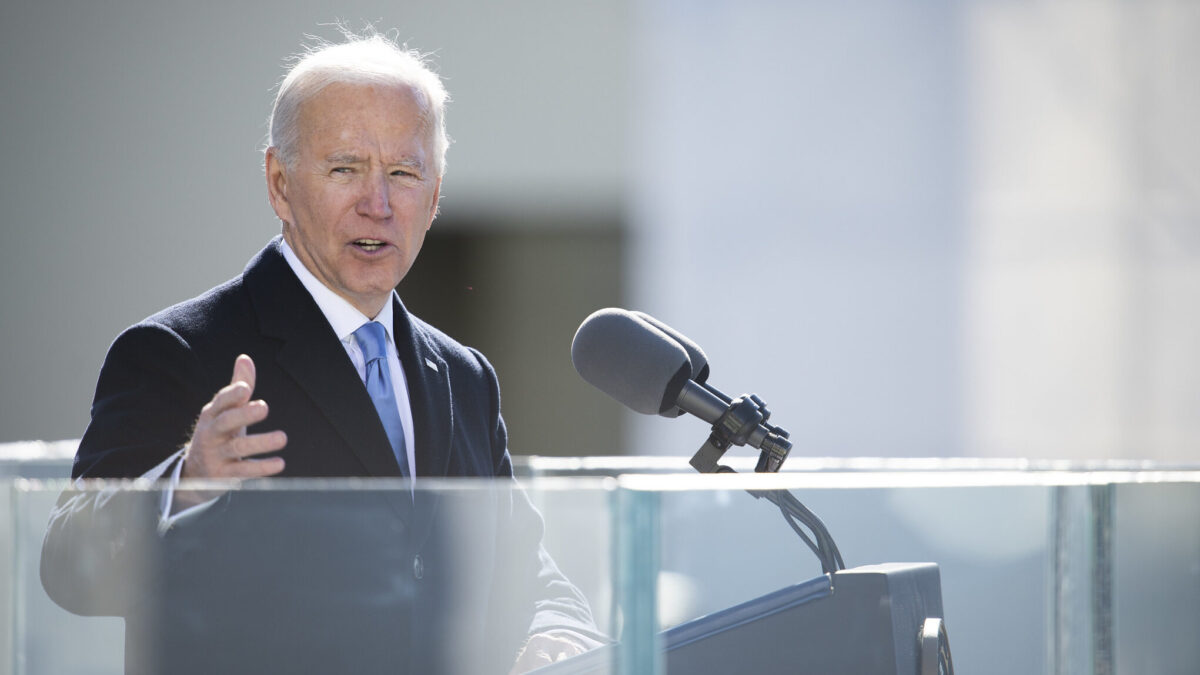Is Nikki Haley a creation of the Washington establishment and its consultant class, a regime-picked candidate being groomed as a possible replacement for Biden — as Tucker Carlson suggested last week — or does she really have broad electoral appeal?
One curious argument going around for the latter view is that a surprising number of Democrats and independents say they’re planning to vote for Haley in upcoming primaries. We already saw this last Monday at the Iowa caucuses, where almost half of Haley’s supporters — 43 percent — said they’d vote for Joe Biden over Donald Trump.
In one Iowa precinct, so many Democrats showed up and requested forms to change their party affiliation so they could participate in the caucus and vote for Haley, they ran out of forms.
It’s shaping up to be the same story in New Hampshire, which holds its primary on Tuesday. New Hampshire has an open primary, meaning independents or unaffiliated voters (who make up 40 percent of all registered voters in the state) can cast ballots in the GOP primary election. Because the Democrat Party isn’t holding a primary, and because New Hampshire voters had until Oct. 6 to change party registration, a lot of Democrats are expected to be voting in the Republican primary this week. Thousands of New Hampshire Democrats have reportedly changed their registration, either to unaffiliated or to Republican, and will likely be voting Tuesday.
Who will these non-Republicans being voting for? Nikki Haley, of course. One poll found that among Haley supporters only 28 percent were Republicans, versus 53 percent who said they were Democrats. Another New Hampshire poll this week found that among voters who consider themselves left-leaning or moderate, Haley is beating Trump 56 to 27 percent. The same poll also found that a staggering 37 percent of likely Haley voters say their support for the former U.N. ambassador isn’t so much a vote for Haley but against Trump.
Despite all this polling data, the argument among the pro-Haley crowd is that all this crossover primary voting shows how strong she might be in the general election, that she appeals to a broad voter base, and that her moderate views will expand the GOP tent in November. Haley herself has pushed this line, telling a reporter last month, “If we get independents, if we get conservative Democrats, that’s what the Republican Party should pursue. Our goal is to get as many people in the tent as we can. Stop pushing people away from the party. Instead, bring people in.”
But will the new voters she’s supposedly bringing in vote Republican in November? Probably not. Indeed, polling suggests that very few of the Democrats planning to vote for Haley next week in New Hampshire would choose her (much less Trump) over Biden in a two-way race. A sizeable number of them even admit they’re animated by anti-Trump sentiment, which means they likely support Democrat policies and priorities and aren’t coming over to the GOP side so much as infiltrating the Republican primary to skew the results against Trump.
What’s more, I suspect Democrats who are inclined to support Haley aren’t doing so for the same reasons the millions of blue-collar Democrats in the Rust Belt supported Trump in 2016. Back then, Democrat crossover voting in the general election had a lot to do with how very different Trump was from the other GOP candidates. He took policy positions sharply at odds with the Republican establishment, mercilessly criticized his Republican primary opponents, and upended what had appeared to be the GOP leadership consensus on a host of issues, from the border to trade to foreign policy.
In other words, it was all the ways Trump stood in contrast to the Republican establishment — and the Democrat establishment, for that matter — that attracted so many disaffected Dems and disillusioned independents to his candidacy. It’s why people who hadn’t voted in a presidential election in 30 years came out to vote for him. It’s also why he was able to expand the Republican party’s tent by increasing the number of black and Hispanic voters.
In light of all that, consider whether the same thing is happening with Democrat support for Haley. Is she really bringing disaffected liberals into the GOP, or is she merely an establishment tool to draw out the primary season, sap the Trump campaign of resources it might otherwise devote to the general election, and give the appearance that Republicans haven’t really united behind Trump?
Biden and the Democrats, after all, would like nothing more than to spin a narrative that there’s a sizeable cohort of Never Trump GOP voters out there yearning for a return to the moderate social views and hawkish neocon foreign policy of the Republican Party before Trump. But there isn’t. Just take New Hampshire as an example. If you take away Democrat crossover voters and independents, her support among actual Republicans is too small to take her campaign seriously.
On Thursday, Haley tweeted out a montage of Trump praising her when she was serving his administration as U.N. ambassador, and added the comment: “Why is Donald Trump spending so much time and energy attacking me? Because he knows I’m a threat.”
Maybe the explanation is simpler than that. Maybe Trump doesn’t see Haley as a threat but as a stalking horse for Democrats, who make up most of her base of support. The other part of her base is of course the globalist elites whose neocon warmongering Haley consistently champions. The reality of Haley’s candidacy in this regard was masterly summed up in a recent column by former Trump official John Ullyot: “Unfortunately for Haley, this week her real base of political supporters is 3,798 miles away from New Hampshire in Davos, Switzerland, wheels-down in its private jets attending the annual self-congratulatory World Economic Forum confab of globalist elites.”
The other big thing to note here is that given the polarization in our politics right now, and given the ideological sorting that’s taken place over the last 15 years or so (and especially since 2016), there’s a very real sense in which appealing to the other side is a liability, not an asset. Democrats have rushed so far to the left since Obama won the White House in 2008 that there are very few self-identified “moderate” or “conservative” Democrats, or even independents, left.
In this context, leftist Democrat support for a GOP candidate isn’t exactly something to brag about. It’s like Confederates bragging about Native American warlords being on their side during the Civil War. They joined the Confederates because they supported slavery. Much the same could be said for courting voters who support abortion, transgenderism, endless foreign wars, and open borders. If they support your candidacy, maybe you’re on the wrong side.
The blunt truth is that the much-vaunted independent vote shrinks every cycle, as the parties come more into alignment with their animating ideologies. When Haley talks about appealing to “conservative Democrats,” who exactly is she talking about? Those would be Trump supporters, who have already been brought into the GOP by Trump himself. What’s left are liberals, leftists, and neocons — Haley’s actual constituency.









